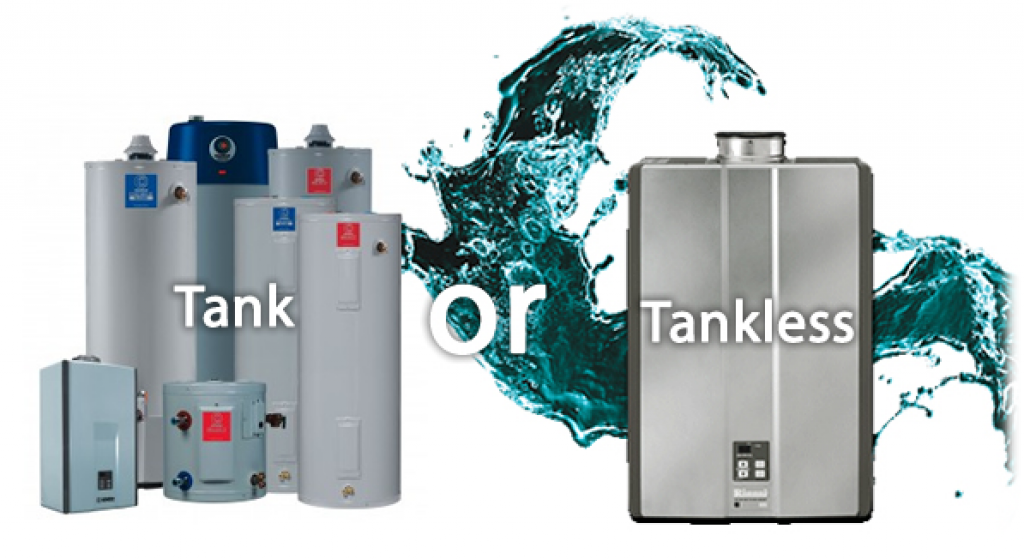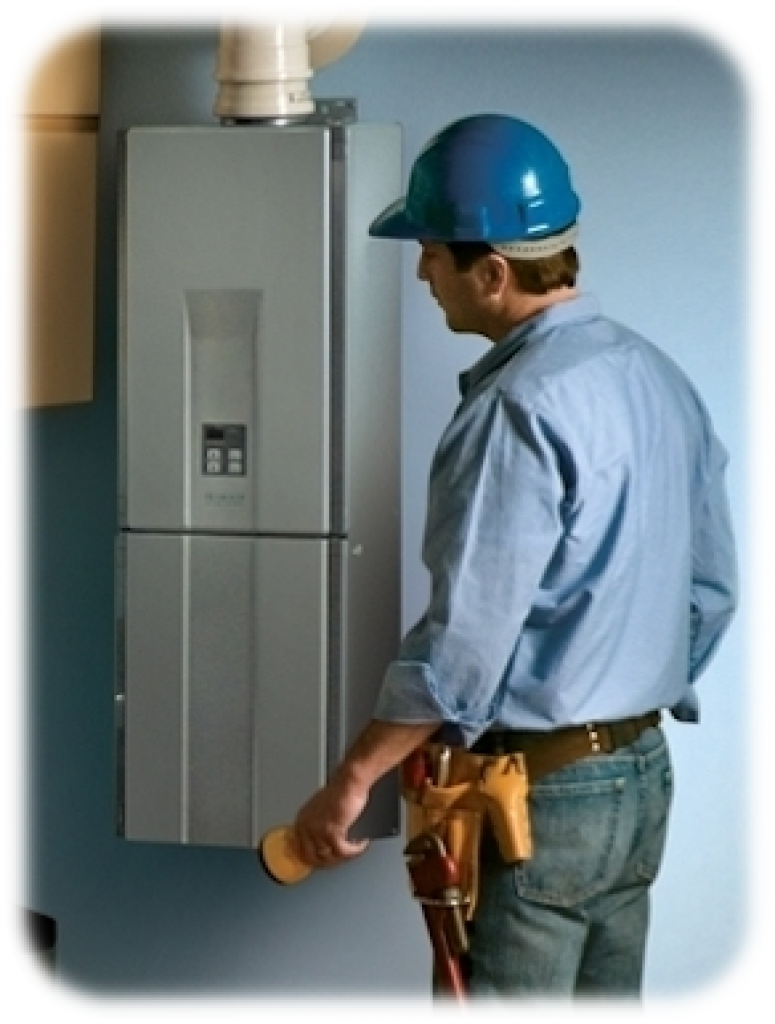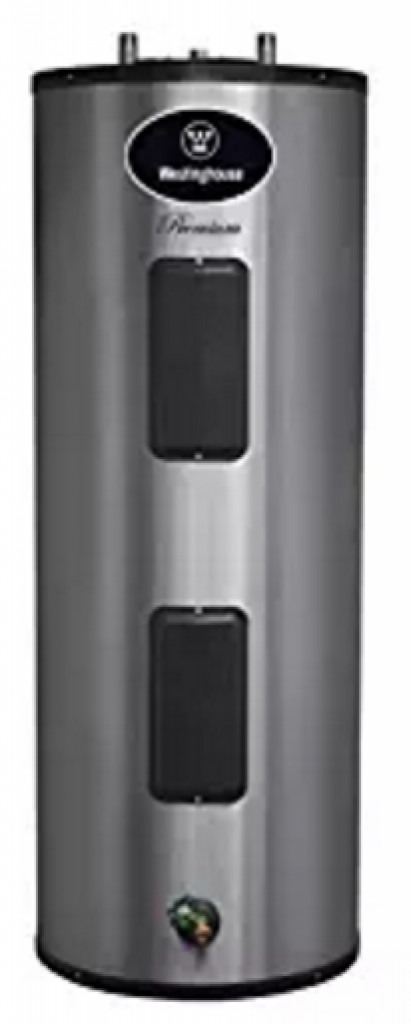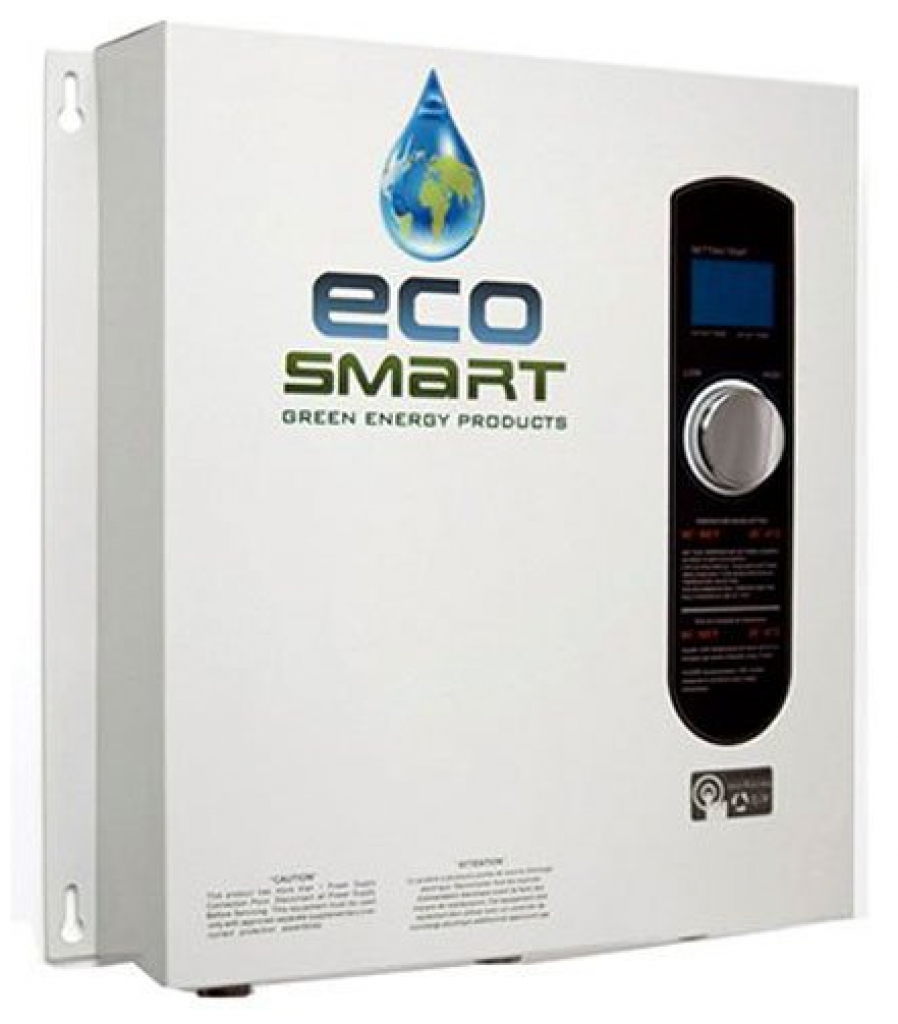 The choice of a water heater is never an easy one. Your decision will define how well your house is supplied with hot water. It will also affect your utility bills, as different kinds of heaters consume different amounts of energy. To make the right decision and choose the best water heater for your home, you have to consider the type of the heater you prefer – tank or tankless, and only then decide on the energy source – gas or electric.
The choice of a water heater is never an easy one. Your decision will define how well your house is supplied with hot water. It will also affect your utility bills, as different kinds of heaters consume different amounts of energy. To make the right decision and choose the best water heater for your home, you have to consider the type of the heater you prefer – tank or tankless, and only then decide on the energy source – gas or electric.
Storage, or tank water heaters are traditional and have been in use since 1889. This useful device has been invented by Edwin Ruud, the founder of Ruud Manufacturing Company that still produces high-quality tank heaters today. They are popular thanks to their conventional design and the ease of use.
 Tankless water heaters are also called on-demand, instantaneous, and continuous flow heaters. They have appeared on the market only recently, yet have won the love of users almost at once. Their main advantages are energy-efficiency and instant access to hot water.
Tankless water heaters are also called on-demand, instantaneous, and continuous flow heaters. They have appeared on the market only recently, yet have won the love of users almost at once. Their main advantages are energy-efficiency and instant access to hot water.
The main difference between these two types of heaters can be guessed from their name. Tank heaters come with a reservoir that holds water (usually from 40 to 80 gallons) and contains a heating element. They can offer as much water as the tank can hold. Moreover, you have to wait for it to get hot (sometimes, around two hours). Tankless heaters come without such a reservoir. Instead, they can heat water instantaneously as it passes through the unit, thus providing unlimited hot water at any time.
Apart from the peculiarities of the construction, there are other important differences between these two types of heaters. This comparison table will help you decide which one is best for you:
| Tank | Tankless | |
| Amount of hot water | 20-100 gallons | unlimited |
| Initial cost | low | high |
| Energy-efficiency | low | high (24-34% higher than tank heaters) |
| Size | bulky (depends on the size of the tank) | compact |
| Lifespan | 10-15 years | 20 years |
| Operation | continuous | on demand only |
| Warranty | 6 years | 12 years |
| Best model | Indoor Direct Vent Tankless Natural Gas Water Heater from Rheem | Universal Water Heater from Rheem |
Pros and Cons of Tank Water Heaters
 Storage water heaters remain very popular today, even despite all their drawbacks. Most models, including this high-efficiency heater from Westinghouse, are available with several tank sizes.
Storage water heaters remain very popular today, even despite all their drawbacks. Most models, including this high-efficiency heater from Westinghouse, are available with several tank sizes.
Among the main advantages of conventional heaters are:
- Low initial cost. The price of most models plus the installation is considerably lower than the price of most tankless models without installation.
- Ease of installation. Installing a tank heater does not require as much hard work as in case with on-demand models.
If you choose a storage heater, you should be ready to face such disadvantages:
- Limited amount of hot water. With a tank heater, you may find yourself in a situation when you run out of water in the middle of a shower, with body wash all over your body. That is especially true for large families.
- Low energy-efficiency. As storage heaters work continuously to maintain a constant water temperature, they consume much more energy than their tankless counterparts.
- Bulky size. Conventional heaters are not the best option for small households with limited space options. The most compact are models with small 20-gallon tanks, yet they are not practical due to the small amount of water.
- Short lifespan. As the heating element of tank models is engaged continuously, it wears off after ten to fifteen years of service.
Pros and Cons of Tankless Water Heaters
Tankless water heaters are a great choice for those who are ready to pay more. You will get a high-quality construction, a fault-free performance, and as much hot water as you need.
The main advantages of on-demand models are:
- Unlimited hot water any time you need. Continuous-flow heaters heat the water instantaneously at your demand and can offer as much of it as you need. With such a heater, you will never run out of hot water.
 High energy-efficiency. Most tankless models, including this heater from EcoSmart come with 94-98% efficiency. They allow you to save up to 50% on water heating.
High energy-efficiency. Most tankless models, including this heater from EcoSmart come with 94-98% efficiency. They allow you to save up to 50% on water heating.- A compact design. As instantaneous heaters come without a water reservoir, they are much smaller than tank models. That makes them an excellent choice for any household, even for tiny apartments.
- Durability. Thanks to the long-lasting technology, on-demand water heaters can offer a perfect performance for twice as long as tank models.
Speaking about the disadvantages of tankless heaters, there are two main points:
- High initial cost. Some tankless models cost three times as much as standard storage heaters. Their installation is rather costly, too. However, thanks to the high energy-efficiency, they help save money in the long run.
- High maintenance. To make an on-demand heater serve you for many years, it is best to have it checked and serviced at least once (better twice) a year.
In the end, deciding which type of heater suits your household better is solely up to you. This article will be useful for those who want to find out more about what you should consider before purchasing a water heater for your home.





